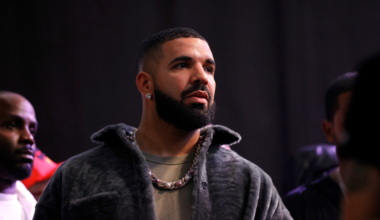In 1960, with a new vision for pop music, Paul McCartney, John Lennon, George Harrison and Ringo Starr began playing together and would eventually form arguably the most influential bands of all time; The Beatles.
The Liverpool rock group would go on to pioneer the growth of the 1960s counterculture and develop, innovate and invent new recording techniques which would go on to shape the way we digest music today.
With thirteen studio albums to their name, the rise of The Beatles was fast and furious. Just seven years after officially forming the band and releasing Please Please Me, The Beatles had announced the end and a break up was confirmed on April 10th, 1970.
With growing tensions in the band, public comments of discontent, the decision to retire from live tours and a difference in creative vision all cited as reasons for the decision to end the band, Beatles fans and historians have long debated the definitive cause for the early end of the world’s best-selling band.
The general consensus has agreed that Lennon, with aspirations to write and record music with Yoko Ono, kickstarted the demise of the band when he held a private meeting with his bandmates in September 1969 and stated his intention to leave The Beatles. With ill-feeling understandably high surrounding the hysteria that the band caused on a daily basis, both Harrison and Starr had already temporarily left the group at numerous points during 1968 and 1969 before rejoining. The killer blow, it has to be said, was the decision made by McCartney to publicly announce his departure from the group.
Although Let It Be was the Beatles’ final album release, the LP was largely recorded before Abbey Road. Many fans believed that the group purposely released Let It Be as their final album, making it a symbolic ending to a pre-planned break-up. However, a newly-found tape recording sourced by Mark Lewisohn, a historian considered to be the world’s leading authorities on The Beatles, dispells that concept. Furthermore, the recording also suggests that it was Lennon who was planning future albums by The Beatles, not pushing for the break-up.
“It’s a revelation,” Lewisohn told The Guardian. “The books have always told us that they knew Abbey Road was their last album and they wanted to go out on an artistic high. But no – they’re discussing the next album.”
Lewisohn claims that the tape is dated September 8th 1969 and shortly after the band had completed the recording of Abbey Road. It sees Lennon leading a meeting between himself, McCartney and Harrison inside Apple’s headquarters in Savile Row and recorded for the benefit of Starr who was hospitalised at the time: “Ringo – you can’t be here, but this is so you can hear what we’re discussing,” Lennon begins.
While it was generally claimed that Lennon was the main member who ultimately proved pivotal in the break up of the band, the new recording seems to suggest the contrary: “You think that John is the one who wanted to break them up but, when you hear this, he isn’t,” Lewisohn added. “Doesn’t that rewrite pretty much everything we thought we knew?”
Elsewhere in the recording, it is claimed that Lennon attempts to dispell what he describes as “the Lennon-and-McCartney myth” and puts forward major plans for a new Beatles album and, on top of that, a new Christmas single. Lewisohn claims that the recording hears Lennon suggest that the proposed new album would be made up of four songs written by himself, four by McCartney, four by Harrison and two by Starr—a move which would appreciate Harrison’s rising songwriting contribution.
Despite the suggestion, McCartney’s response on the recording proves less than popular: “I thought until this album that George’s songs weren’t that good,” he says somewhat provocatively. “That’s a matter of taste. All down the line, people have liked my songs,” Harrison responds defiantly. The conversation is mediated by Lennon who tells McCartney that the rest of the band didn’t “dig” his song ‘Maxwell’s Silver Hammer’ but they still recorded it for Abbey Road, ultimately asking for a compromise.
Historian Lewisohn is currently planning to detail his findings into new collections of definitive works: “I’m 61, and I’ve got 14 or 15 years left on these books,” he said. “I’ll be in my mid-70s when I finish.”
We can’t wait.





